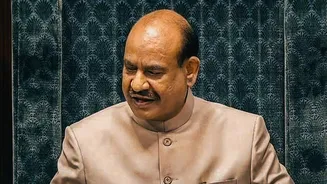Tariffs and Diplomacy
The implementation of tariffs by the Trump administration has generally been met with considerable scrutiny, especially regarding their impact on international
trade and relations. However, an interesting perspective emerges when analyzing their influence on conflict resolution. The argument suggests that these economic measures, despite their disruptive nature, may have played a role in preventing escalation in certain volatile regions. For instance, imposing tariffs can create economic pressure, which, in turn, could compel nations to seek diplomatic resolutions to avoid further economic setbacks. In the case of India and Pakistan, a heightened state of economic vulnerability triggered by tariffs might have incentivized a more cautious approach to cross-border tensions. This view challenges the conventional perception of tariffs and offers a fresh angle on how economic tools can shape geopolitical stability. It also prompts a reevaluation of the long-term consequences of trade policies on global affairs, highlighting the multifaceted ways economic strategies affect political outcomes.
India-Pakistan Dynamics
The complex relationship between India and Pakistan often involves escalating tensions and frequent border disputes. It is in this context that any external influence or action that contributes to de-escalation becomes especially noteworthy. Former Canadian Prime Minister Carney's acknowledgment of Trump's role in fostering peace between the two nations opens a window on the intricacies of international diplomacy. This perspective implies that the economic pressures exerted through tariffs may have indirectly pushed both countries toward the negotiating table, prioritizing economic stability over conflict. The use of trade policies as a tool for conflict mitigation challenges traditional methods of diplomacy, suggesting that economic levers can serve as effective tools, potentially mitigating military action. It underscores the multifaceted nature of foreign policy, indicating that economic interdependence and potential economic vulnerabilities play a role in shaping decisions on a national scale, leading to greater caution in matters of international conflict.
Economic Pressure Tactics
The employment of economic pressure as a strategic instrument in diplomacy is not a novel idea, but its application within the context of tariff-based policies offers a distinctive example. The Trump administration's approach often prioritized economic gains through various means, and tariffs were a key strategy. The theory is that when these tariffs were placed on trade partners, it created a direct incentive for these partners to negotiate and compromise to safeguard their own economic interests. For India and Pakistan, where economic stability is crucial for growth and security, the threat of economic disruption triggered by tariffs might have encouraged a more measured response to volatile situations. This approach is a part of broader geopolitical moves, using the promise of economic harm to make allies and adversaries alike reconsider their decisions, particularly those with potential implications for global stability. This perspective highlights how economic strategies are strategically employed to maintain peace and stability in complex international relationships, especially in regions characterized by persistent conflict.
Carney's Perspective
When former Canadian Prime Minister Carney credited Trump for helping bring about peace between India and Pakistan, this acknowledgment provides a crucial perspective on the subject. His comments point to the possibility that Trump's actions, often perceived as contentious, may have also contained some beneficial results, specifically in promoting stability. Carney's statement highlights the delicate balance between the effects of tariffs and the broader consequences for global peace and stability. It emphasizes the significance of understanding the motivations behind each foreign policy initiative and assessing its consequences. This view gives insights into the challenges of interpreting international affairs and reminds us that events have multiple dimensions, making it hard to see the complete picture. It also serves as a reminder that policymakers' decisions often involve complex calculations, with unintended outcomes that can significantly shape the world stage.
Global Conflict Avoidance
The assertion that tariffs helped avert global conflicts carries significant weight, implying that economic strategies can have a direct and positive impact on international relations. Such a claim goes against traditional views, which consider tariffs to be destructive forces. By potentially altering the calculus of international relations and adding economic incentives to the mix, these tariffs may have changed the behavior of key players. Averted conflicts may also be attributed to the heightened economic interdependence fostered by global trade and the consequences that come with economic disruption. Moreover, the implementation of tariffs could have helped foster a climate where diplomacy and peaceful resolution took precedence over military actions. This perspective highlights the complex interactions between economics and politics, and the ways that economic policies can have far-reaching and often unforeseen consequences for global peace and security, reinforcing the need for multifaceted approaches in dealing with international matters.
Broader Implications Analyzed
The discussion about Trump's trade policies raises important questions about the interaction between economics and politics in the modern world. These trade policies are not just about imposing tariffs; they are a statement about how the U.S. perceives global trade relations and its strategic goals. Examining the possibility of a connection between tariffs and international stability requires careful analysis. The question is whether the measures taken were genuinely effective in avoiding conflicts, or if they coincided with other diplomatic processes or geopolitical shifts. It also involves considering the long-term consequences of these policies, including their effect on alliances, trade, and the overall balance of international power. By studying these topics, the article provides a complex view of global affairs and urges a deeper understanding of the tools used to manage global challenges. It highlights the need for ongoing discussion and analysis of foreign policy decisions, particularly in a world of increasing complexity and interdependency.














